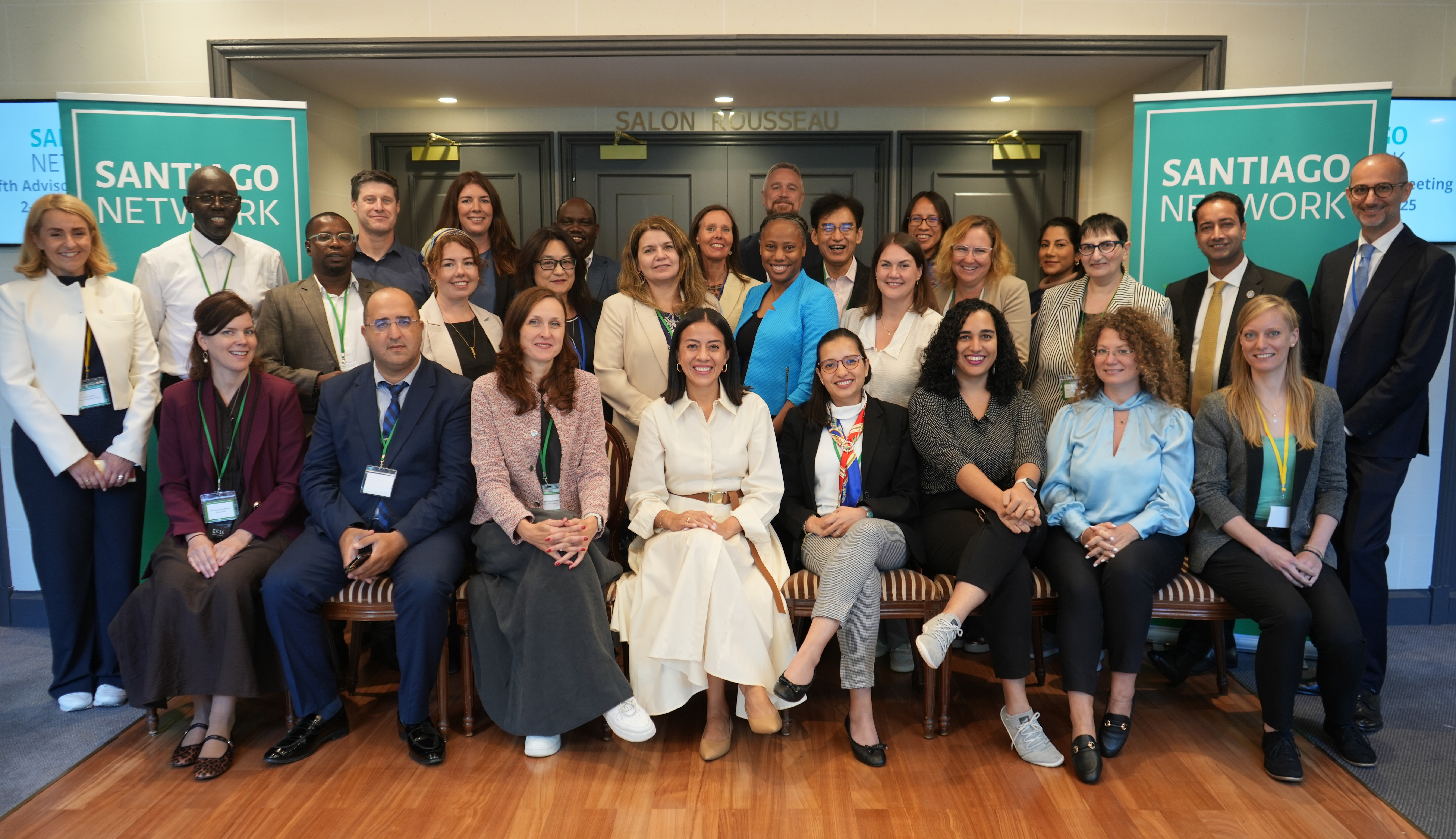Santiago Network sets strategic direction at milestone fifth Advisory Board meeting
The fifth meeting of the Santiago Network Advisory Board (SNAB 5) took place in Geneva from 2 to 4 September 2025, marking a milestone moment as the Network strengthens its role in responding to the urgent needs of developing countries and communities on the frontlines of climate change impacts.
Since the fourth Advisory Board meeting in April, the Santiago Network has made significant progress and is charting a clear course ahead. Seven formal requests for technical assistance have been submitted, underscoring the growing trust in the Network’s ability to deliver technical assistance. Membership has expanded to 62 organizations, bodies, networks and experts — representing diverse expertise across regions. Partnerships with the Executive Committee of the Warsaw International Mechanism (WIM Executive Committee), the Fund for responding to Loss and Damage (FRLD), and other key actors have also deepened. Dedicated workshops, targeted outreach and increased visibility have brought the Network closer to those most affected by climate change, ensuring that support is tailored, inclusive and demand-driven.
At the centre of this meeting was the adoption of the Network’s first strategic framework, anchored in a clear vision: to build a world where developing countries and communities shape and drive inclusive action on loss and damage. The Santiago Network strategy reflects the Network’s unique role in connecting urgent needs with technical expertise. It positions the Santiago Network to provide tailored, context-specific assistance that empowers countries and communities to define their priorities and lead action on loss and damage.
The framework — comprising the Santiago Network strategy, communications strategy, outreach and engagement strategy, and resource mobilization strategy — sets the course for the next three years. This new phase of scaling, delivery and rapid learning will harness the strength of an inclusive, global network to bridge needs and resources; unlock access to finance, technology and capacity-building; and foster peer learning and innovation. This approach reflects the core belief that those most affected by climate change must be equipped to drive effective, coordinated responses that protect people and strengthen resilience.
Complementing the strategic framework, the Advisory Board adopted key operational documents, including the work programme for 2026 to 2027 and updated budgets for 2025 and 2026. These decisions translate strategy into action, equipping the Network with the tools and resources to deliver demand-driven technical assistance where it is needed most.
Reflecting on the outcomes of the meeting, Carolina Fuentes Castellanos, Director of the Santiago Network Secretariat, said: “The decisions adopted at this meeting are crucial for the effective delivery of the Santiago Network’s mission. With a clear vision, strong strategies and the operational tools to act, we are now better positioned than ever to connect developing countries and communities with the expertise and support they need, at the right time and shaped by their priorities, to lead action on loss and damage.”
With this strengthened direction, the Santiago Network is ready to accelerate delivery — empowering developing countries and vulnerable communities to take inclusive, impactful climate action on loss and damage.

Fifth meeting of the Santiago Network Advisory Board in Geneva, Switzerland from 2 to 4 September 2025.
Relevant links:
Fifth Advisory Board meeting page
Report of the fifth Advisory Board meeting
Statement from Co-Chairs on the fifth Advisory Board meeting